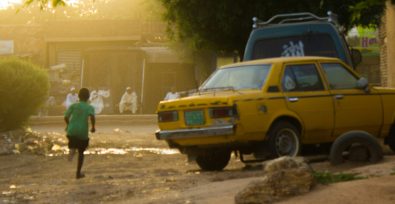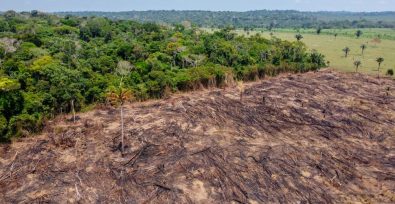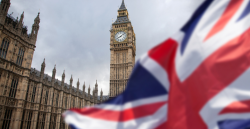A new government study, released with Save the Children, reveals a staggering crisis: nearly two-thirds of South Sudanese children are trapped in the worst forms of child labor—and in some regions, that figure rises to 90%.
This isn’t just about poverty. Relentless flooding, disease outbreaks, and ongoing conflict have uprooted families, while the loss of US aid has pushed millions to the brink of starvation. Desperation is driving children into dangerous, exploitative work, forcing girls into marriage for survival, and pushing boys into armed groups.
Simple jobs turning into deadly work
What begins as small tasks quickly turns into life-threatening labor. In one southern region near Uganda, nine out of ten children are working — not studying. Many are mining gold or toiling on farms. Mining, deadly even for adults, can be a death sentence for children.
As reported by Aljazeera, Chris Nyamandi, Save the Children’s South Sudan country director said:
Education remains the strongest protective factor, when nearly two-thirds of a country’s children are working – and in some areas, almost every child – it signals a crisis that goes beyond poverty.
Research shows that education is one of the strongest protections against exploitation—yet for many South Sudanese children, school is no longer an option. Exploitation often follows gender lines: boys are pushed into dangerous work like mining or armed groups, while girls face forced marriage, domestic servitude, and sexual abuse.
Shockingly, awareness of the law isn’t enough to stop it. The study found that 70% of children working in dangerous or illegal conditions came from homes where adults knew hazardous child labor was prohibited. Meanwhile, two-thirds of children didn’t even know that help existed.
Aid freeze deadly and dangerous for children
South Sudan is teetering on the edge of catastrophe. Escalating violence has already forced 300,000 people to flee this year alone, while those who remain face relentless flooding, a malaria outbreak, and severe food shortages. Today, 7.7 million people are living in acute hunger—and experts warn that the US suspension of USAID funding could trigger the region’s deadliest famine in 50 years. The crisis stretches across the border into Sudan’s South Kordofan, where suffering mirrors that of South Sudan.
The founder of a Sudanese thinktank Confluence Advisory, Kholood Khair, warned:
It’s difficult to overstate how devastating the USAID cut will be for (the region), not just because (the region) is the world’s largest humanitarian crisis but also because the US was (the region’s) largest humanitarian donor.
Tragically, advocates say the devastation is getting worse by the day. That spells disaster for all. But for children, it means desperate parents need them to do any kind of work just to help feed the family.
Naomi Ruth Pendle, Lecturer in International Development, University of Bath shared:
I’m now getting reports from South Kordofan of households not lighting a fire for up to four days at a time, which means the family is not eating. And, as ever, it is the children and the elderly who are particularly vulnerable.
According to Pendle, the administration “could not have turned off USAID support at a worse time” for the area. South Sudan’s child labor prevalence already vastly exceeds other regional patterns. And while East Africa has the continent’s worst record on child labor overall. At 64 percent, South Sudan’s is more than double that figure according to ILO-UNICEF data. In the face of these facts, USAID’s claims of keeping the organization’s “lifesaving and strategic aid programming” are ringing hollow. Freedom United and human-rights advocated world-wide call on the US government to immediately restart life-saving aid through USAID to Sudan.







Freedom United is interested in hearing from our community and welcomes relevant, informed comments, advice, and insights that advance the conversation around our campaigns and advocacy. We value inclusivity and respect within our community. To be approved, your comments should be civil.